Become the Hostess With The Mostest
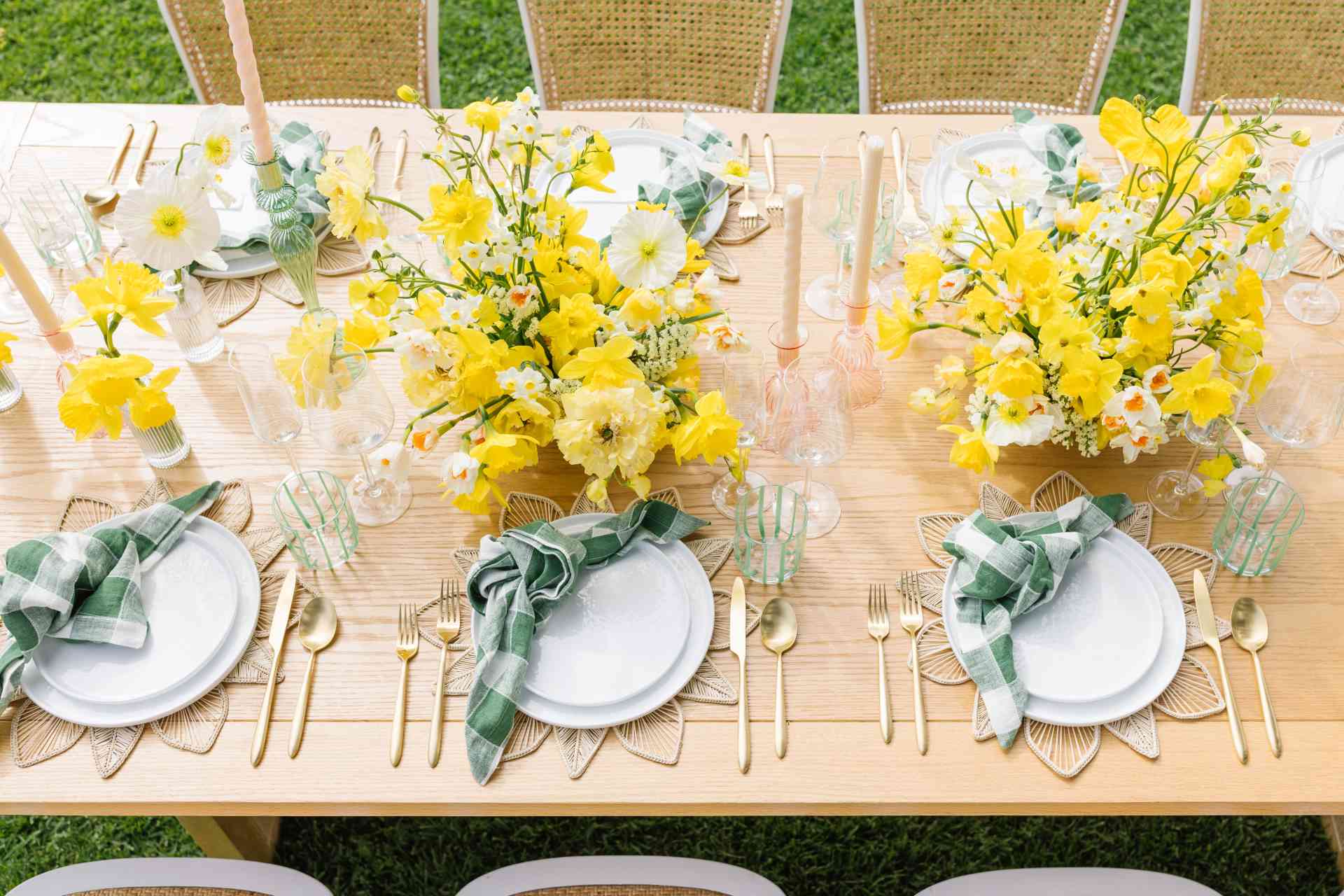
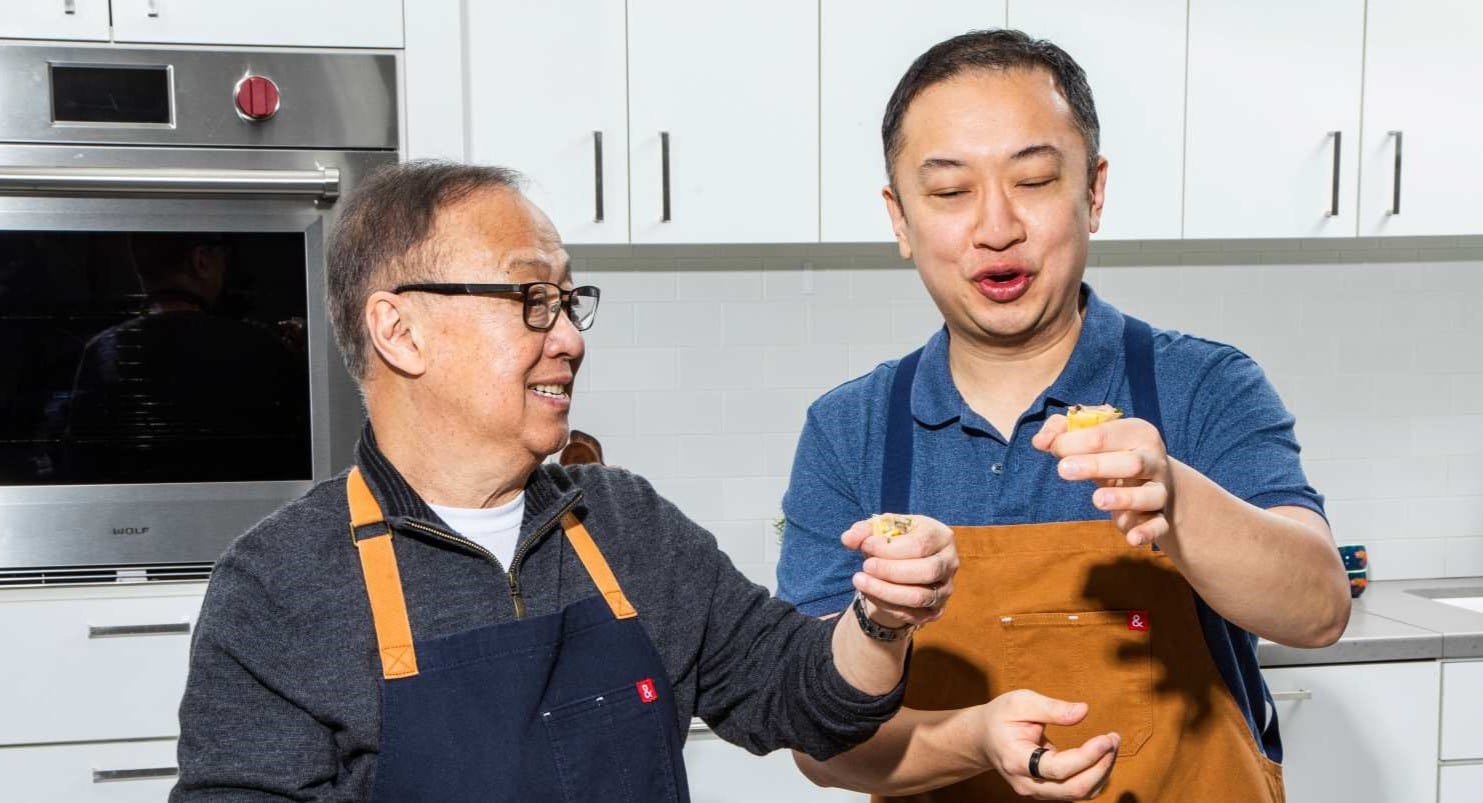
You know that moment when you get your hands on a really good cookbook and you can’t wait to 1) make every recipe in that cookbook and 2) tell anyone and everyone who will listen about it?
Yeah, that’s pretty much us ever since we got our first look at James Beard Award-winning writer Kevin Pang’s new book, A Very Chinese Cookbook.
Written in partnership with his father—Jeffrey Pang—and America’s Test Kitchen, the book is a delicious and delightfully humorous homage to his parents, his Chinese heritage and experience as an immigrant growing up in America.
With favorites like American-Style Egg Rolls and soup dumplings (complete with a step-by-step instruction for that perfect crimp), Pang aims to demystify Chinese cooking, all while keeping his lighthearted and irreverent sense of humor front and center.
We sat down with Kevin to learn more about what makes this “a very Chinese cookbook” and the journey that led him to writing it.
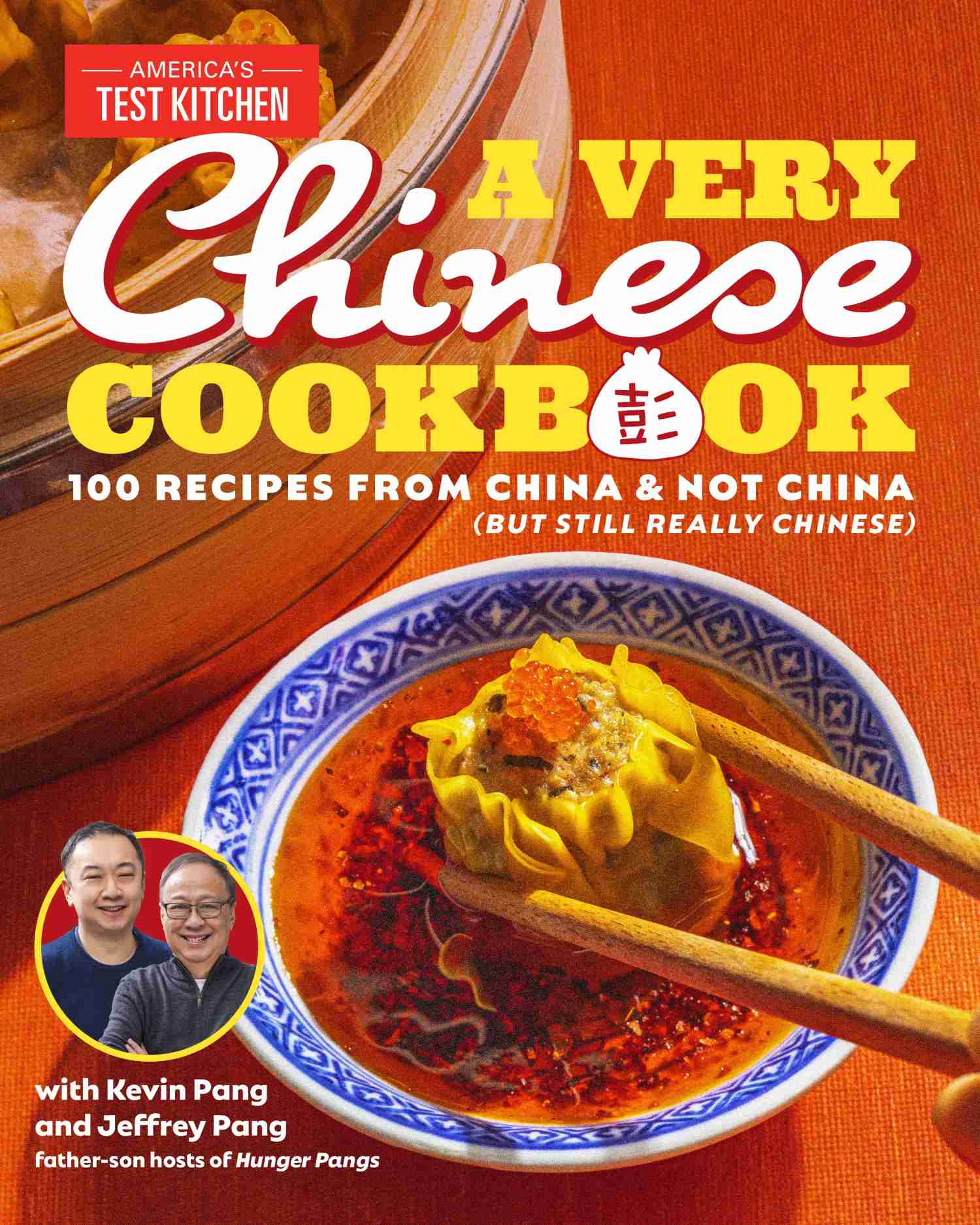
Hungry for more? You can cook along with Kevin and Jeffrey by snagging a copy of their cookbook, A Very Chinese Cookbook. From sesame noodles and soup dumplings to General Tso’s Chicken, you’ll get an authentic taste of China right from the comfort of your own home.
Let’s start with a little backstory: Where did you grow up? Who do you call “family?”
Everywhere. I’ve spent roughly six years each in Hong Kong (where I was born), Toronto, Seattle, Los Angeles, and the last two decades in Chicago.
My family is my wife and 8 year old, as well as my parents and sister in Seattle.
You started your career as a metro writer for the Los Angeles Times and then as a food writer for the Chicago Tribune—how did you make the leap from local news stories to writing about food and cooking?
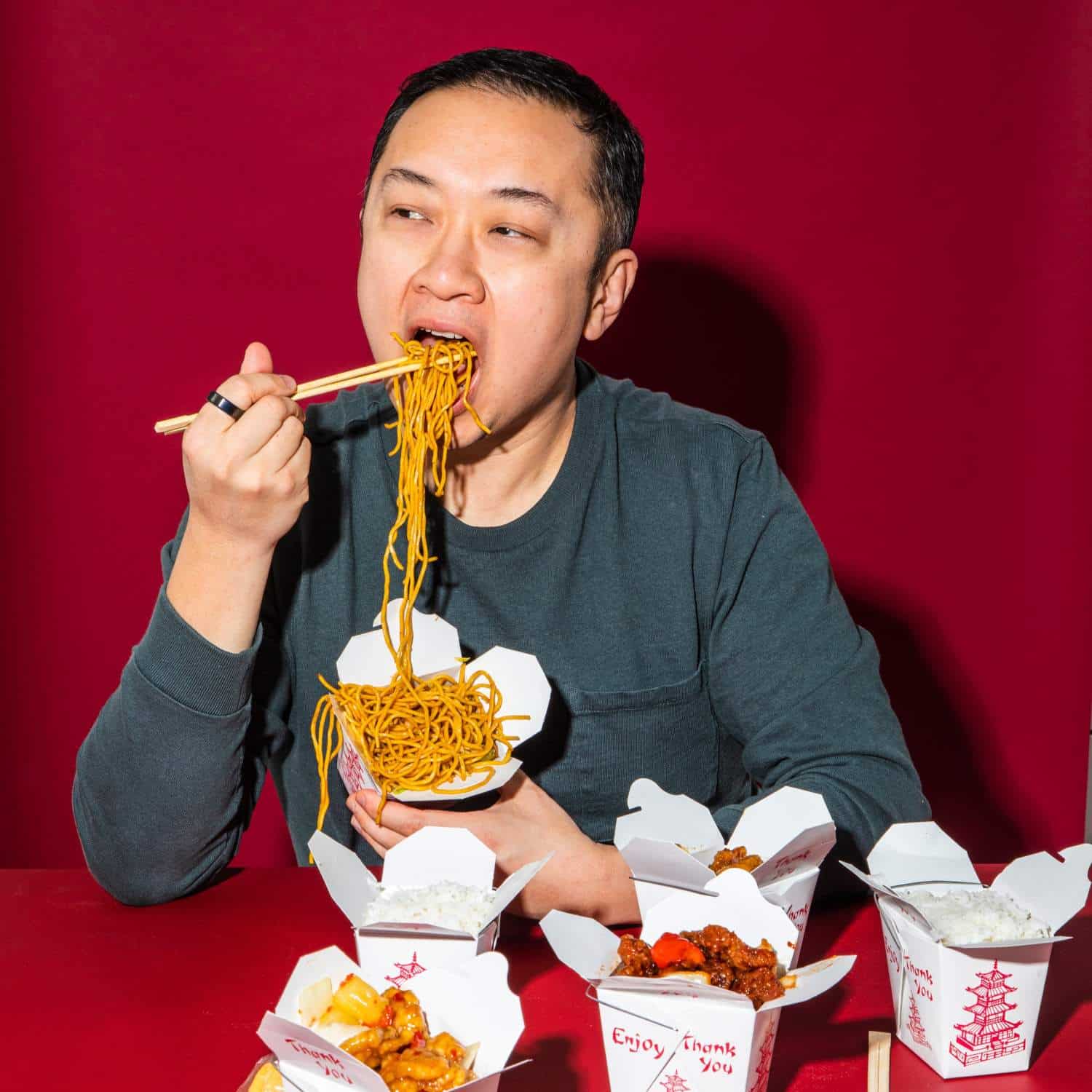
My food-writing origin story is rather unnoteworthy. Accidental, you might even say. I wanted to go the hard news route—cover warzones, become a foreign correspondent. One day when I was 24, an editor asked if I wanted to write about food. I thought about it, almost said no, but thought: “I’ll give it a few years.” It’s been about 20.
How did your love of writing about food translate into cooking it?
When you’re served a plate of food, often it lacks context. You don’t know the backstory; you don’t know who cooked it. But once you learn about how it got there, once the story gets told, it makes that plate of food so much more meaningful. And you could for sure taste it.
Writing is storytelling, and storytelling makes cooking a much richer experience.
From what I’ve gathered from previous interviews you’ve done, before A Very Chinese Cookbook came to life, it all started with your father’s YouTube channel—a cooking channel that at its peak amassed over 2 million views. How did his passion project inspire the cookbook?
When we moved to North America from Hong Kong in the 1980s, my parents brought along a spiral-bound notebook that contained our cherished family recipes. It took many years for them to refine those recipes into what they are.
Many of those recipes appeared on my dad’s YouTube channel, and his favorite dishes are featured in Chapter 6 of A Very Chinese Cookbook, called “Jeffrey’s Greatest Hits.” You can trace a straight line from that tattered blue notebook through several decades to my dad’s YouTube channel, all the way to our ATK cooking show, and now our cookbook.
You worked very closely with your parents—particularly your dad—in writing the cookbook. What was that experience like?
Well, we didn’t fight once! So that was nice.
Truthfully, we would spend hours on the phone each week, and I would interview my dad for stories from his past for nuggets of cooking wisdom. This is something I couldn’t envision doing on my personal time. It’s funny that it took a book project with America’s Test Kitchen for me to learn about my parents, in a way I never imagined before could happen.
What has writing this cookbook—and getting to work so closely with your father—taught you about your culture? How has it changed your relationship with your parents?
The great irony about growing up is the more you know, the less you know.
It’d be easy for me to enter this project thinking I was an expert in Chinese cooking, by virtue of being Chinese, a professional food writer, and a guy who’s eaten the stuff for four decades. Turns out, the more I dove into my culture, the more I saw the iceberg beneath the surface. There is so much I didn’t know, and so much more that I could learn.
It’s both humbling and invigorating knowing that I could never learn too much about my Chinese heritage.
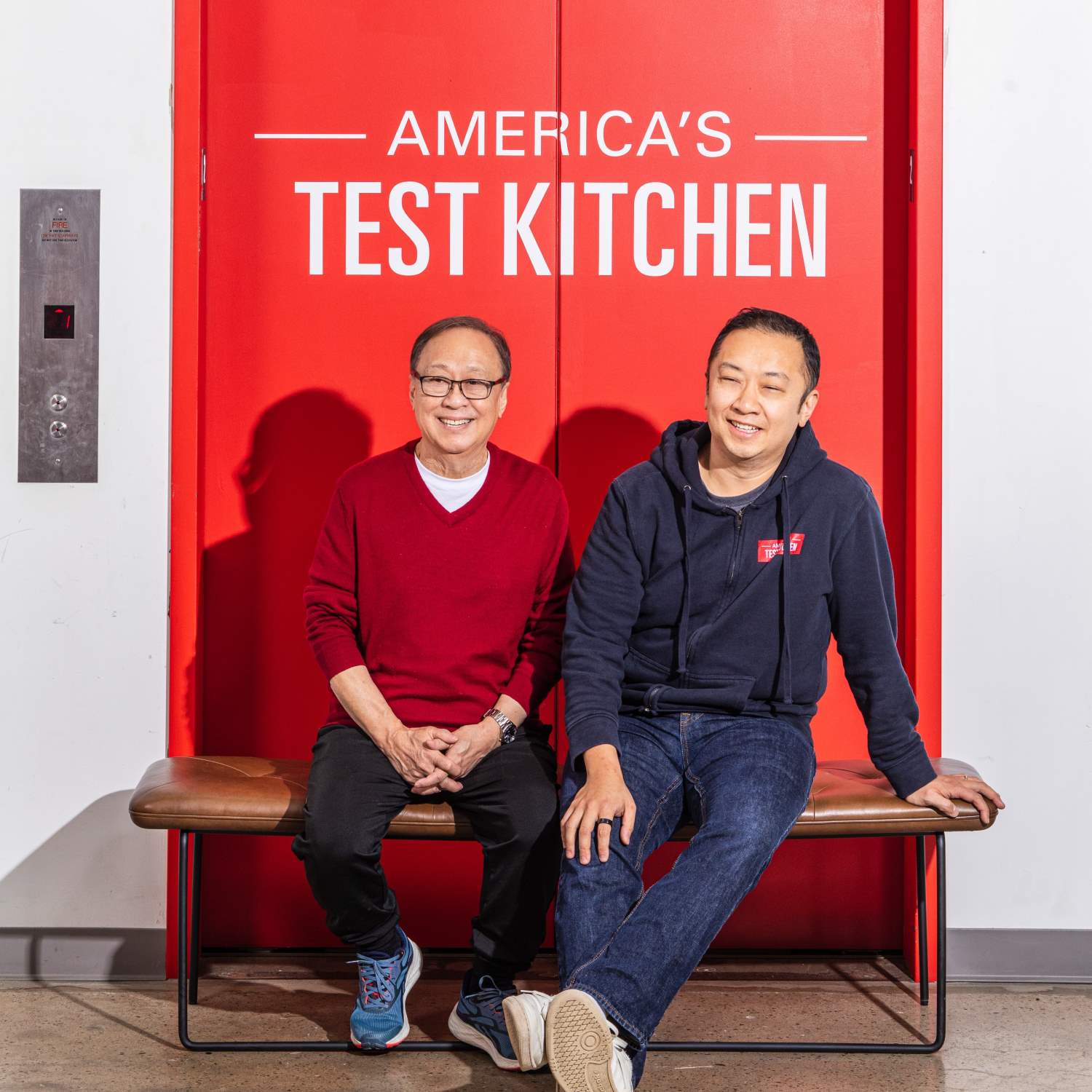
It’s clear the book is influenced by your parents and the recipes they brought with them when emigrated from Hong Kong in the late 80s. Were these recipes you grew up eating?
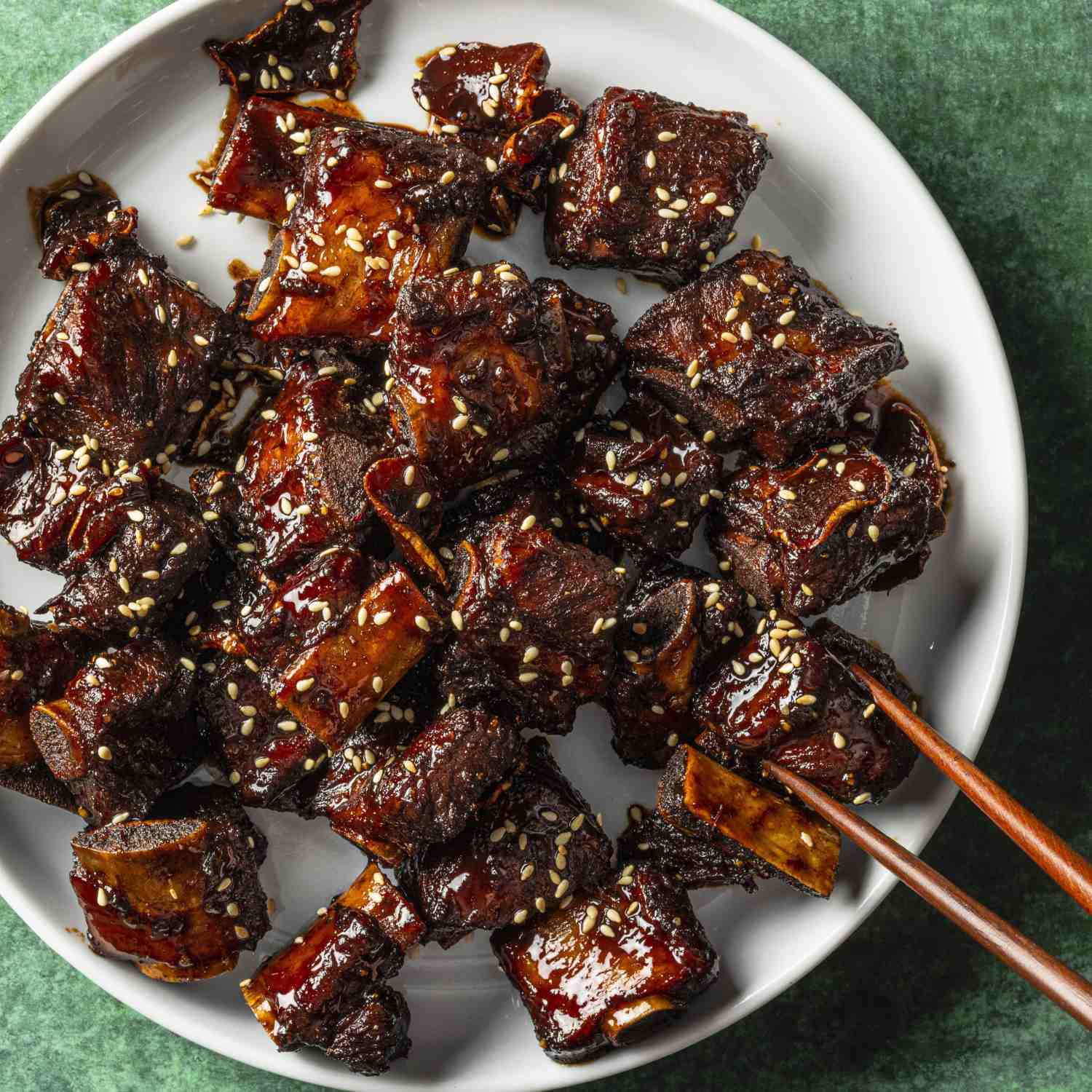
Oh, for sure. There’s a dish in there called Portuguese Chicken, a curious dish that most non-Chinese folks would never guess as Chinese food. But in Hong Kong, it’s a favorite of kids and diner patrons. It’s the mac and cheese of Hong Kong.
You take chicken thighs, cooked in an aromatic, creamy sauce of coconut milk and curry, and ladle that over steamed rice.
If there’s a dish that is more comforting, I haven’t met it yet. And that dish is beloved in Hong Kong through and through.
What role did food and the act of sharing a meal play in your family? Or, what role does food and the act of sharing a meal play in the Chinese culture?
I could only speak for my family, but dinnertime was sacred.
No matter what arguments you had, or how crummy of a day you’d had at school or work, we’d sit down at 6:30 PM every night to share a meal. There’s no TV, no checking phones (definitely not in the 90s), no reading the newspaper. We’d eat and converse. That was sacrosanct.
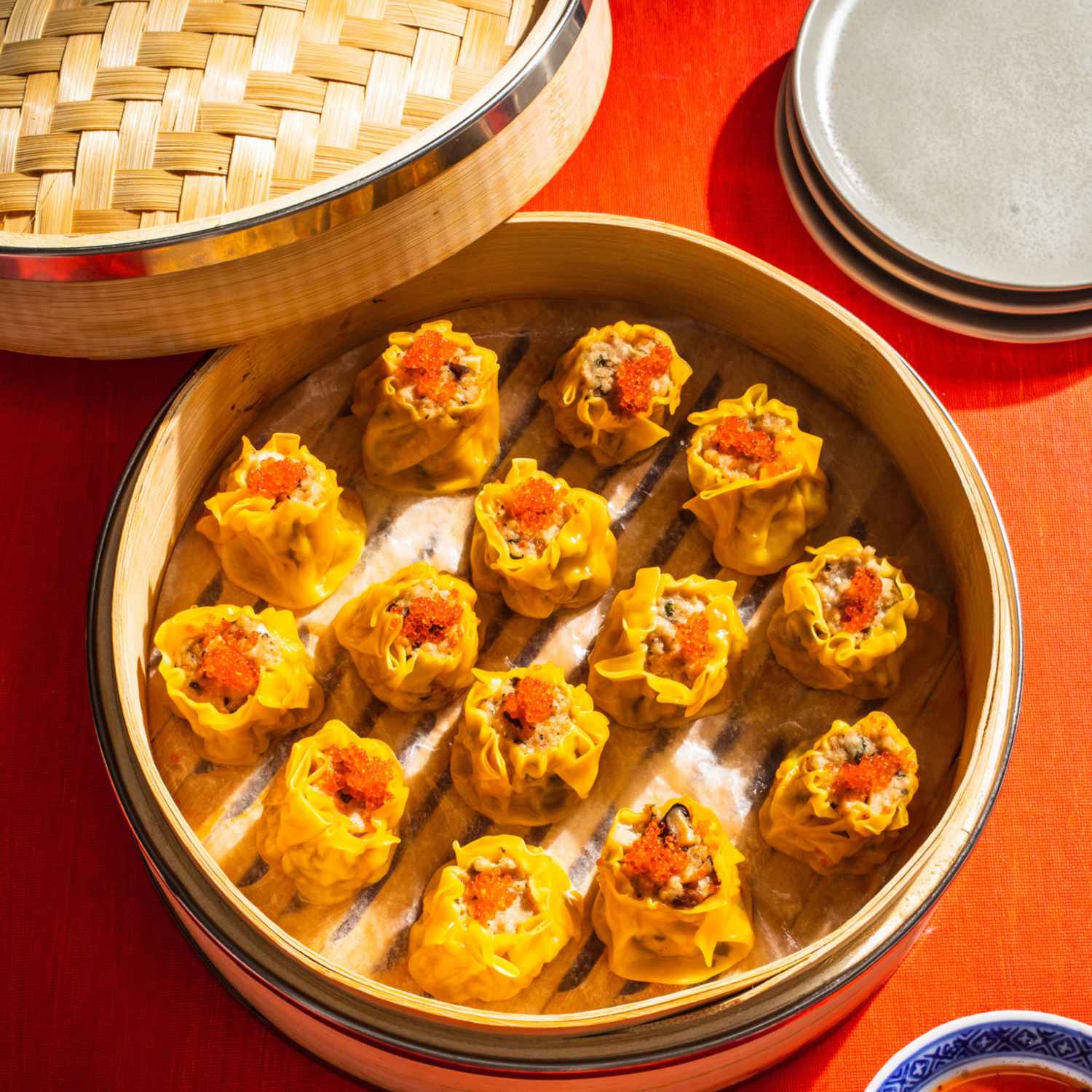
Lunar New Year is right around the corner, so it seems almost serendipitous that we’re partnering with you and America’s Test Kitchen to promote it. For those of our readers that don’t know, what is Lunar New Year?
Scientific answer: It’s the celebration of a new year based on the lunisolar calendar.
Cultural answer: It’s a time for families to get together, eat, celebrate and wish each other good health and fortune.
Food answer: It reminds me a lot of American Thanksgiving, because there’s certain food traditions we’d always follow.
Are there any foods that hold special significance during the Lunar New Year festivities? If so, what are they?
An entire book could be written about this, but I respect your time, so I’ll give you the CliffsNotes version.
The Chinese would often eat food that sounds like words of good fortune. Yes, we have a homophone-based diet. The word for “fish” sounds like the word for “surplus,” as in a surplus of money. So, we’ll eat that.
We’ll eat this black moss called “fat choy” because it sounds like the word for “prosperity.” We’d make fried crispy sesame balls, with the idea that gold and silver will “roll” into our household if we make enough.
What is your favorite recipe from the book? Or, conversely, what do you hope people take away from the book?
Choosing one favorite dish? It’s like choosing a favorite song—sometimes you want jazz, sometimes you want a headbanger. It’s situational. If pressed for one, I could eat the fried rice in the book every single day.
What I want folks to take away is that cooking Chinese food is less intimidating, more healthful, and way tastier than they could ever imagine.
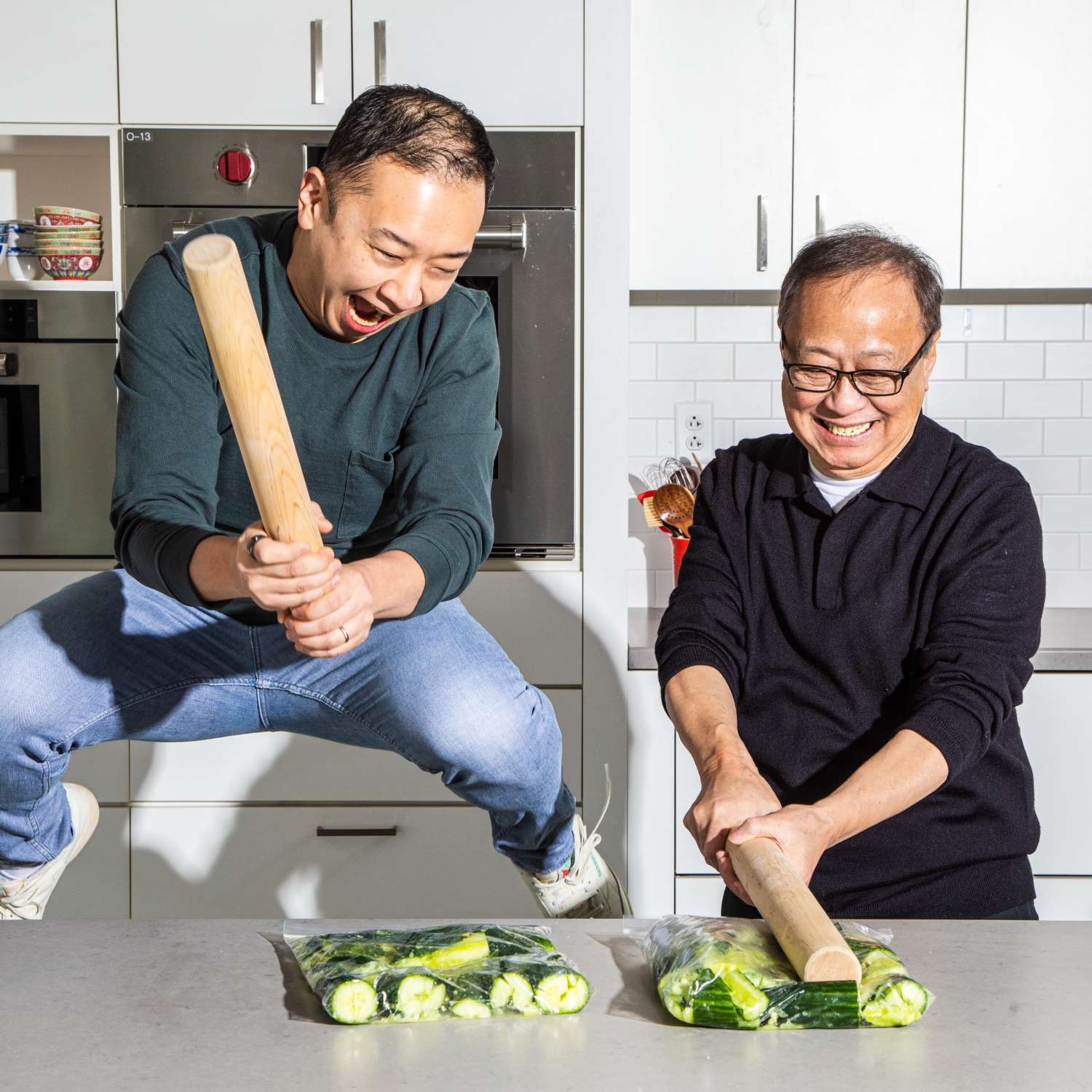
What is your favorite dish you’ve ever eaten?
I’ll offer a very non-Chinese answer: I remember the first time I visited New Orleans and had the fried chicken at Willie Mae’s Scotch House—I had no idea fried chicken could taste as magical as that.
Okay, to wrap things up, I have one very important question: what is your favorite Sur La Table kitchen tool?
I’m lucky to live 2 blocks from a Sur La Table in Chicago. I’m not gonna go the traditional route of a chef’s knife or a solid cutting block.
What I love shopping for are serving platters. I’m a sucker for a large, ornate platter—you eat with your eyes before you eat with your mouth. When you serve a beautifully carved roast chicken with warm bread salad on a gorgeous French platter, it just sets you in a good mood.
Browsing for a good serving platter at Sur La Table relaxes me like nothing else.
Hungry for more? You can cook along with Kevin and Jeffrey by snagging a copy of their cookbook, A Very Chinese Cookbook. From sesame noodles and soup dumplings to General Tso’s Chicken, you’ll get an authentic taste of China right from the comfort of your own home.
Join The Conversation